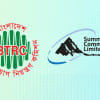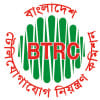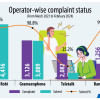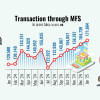BUILDING ON WHAT WORKS BETTER
Bangladesh, with the support and vision of the Bangladesh Bank, has seen remarkable progress in Mobile Financial Services (MFS) in recent years. The expansion of a vast retail network of agents and the volume of money transfers has been one of the fastest growth stories in this industry. These are real and valuable achievements, largely attributable to bKash and DBBL, with regulatory support from the central bank.
However, these achievements are the beginning of a journey to mobile financial inclusion, not the end. According to the authoritative Intermedia's Financial Inclusion Insights survey examining usage of MFS in Bangladesh, approximately 19.7 million people have used bKash for transactions, whereas only 4.1 million unique 90-day users have active accounts. Though around 25 million people in the country use MFS, a large portion of transactions in Bangladesh happen over-the-counter (through agents), as opposed to the accounts of the individuals themselves. This raises two concerns: a) for law enforcement it causes issues around knowing who is actually transacting money, and b) it also limits the ability to drive financial inclusion. The most powerful products and services of financial inclusion are typically deemed to be products like savings, small loans and insurance. These products have to be linked to individual accounts to work.
We have been observing a clear misperception about Mobile Network Operator's (MNO) role in Mobile Financial Service ecosystem which is largely baseless. For example, while comparing Bangladesh to m-Pesa in Kenya, some make the argument that being a dominating operator caused the emergence of a dominant MFS service. In Bangladesh, however, we have seen that operators have a very limited role in MFS, yet one player has more than 85 percent of market share of transactions. Ironically, this market concentration is higher in Bangladesh where operators are not very involved, compared to Kenya where a dominating operator is involved (there is no operator with that sort of dominance in Bangladesh). In other words, an industry can be dominated by any player, independent of whether operators are involved or not.
There is also an argument that operators, if engaged in MFS, could block or disincentivise access to Unstructured Supplementary Service Data (USSD) from competing MFS providers. While this can be a valid concern, it ignores the fact that an operator would face an even bigger challenge as the other operators in the industry would be even more hesitant to grant a competing operator USSD access. USSD access for MFS is too important to be subject to bilateral negotiations between multiple MFS providers and multiple operators. In fact the telecom regulator, BTRC, should be encouraged to regulate the pricing and access criteria of USSD on behalf of the entire industry.
Another common misconception among cynics is that MFS is not a "natural" business for mobile network operators. It seems that a large part of the world begs to differ. 47 of 89 countries with mobile money allow both banks and non-banks to compete, and 60 percent of all mobile money deployments globally were run by MNOs in 2014. We would argue that MFS is as little or as much a natural business for operators as it is for banks or other entities. The MFS entity that the draft regulation from the central bank describes does not hold deposits and does not do lending. Successful MFS companies build high quality agent networks, do strong product development, run stable platforms and have excellent customer service. A lot of industries can relate to that, not just banks or operators.
A further fundamental misconception arises around ownership structure and the potential threat of dominance. Generally, a company dominates an industry for a number of reasons; these can be due to regulation, economics of the industry or superior performance – not ownership structure. If Bangladesh Bank wants to introduce competition to Bangladesh's concentrated market, it should encourage entities that are willing and able to invest, and are able to compete with the incumbents. We believe that having a forced fragmented ownership structure would discourage such innovation.
Bangladesh has made enormous progress. Whether we will be able to claim the same level of progress three years from now will depend on whether we are able to create a healthy and viable competitive environment in the industry to drive innovation and mobile account adoption. We believe this path rests on equal and fair access to USSD, and MFS entities with open ownership that are regulated by Bangladesh Bank.
MNOs are deeply excited about the benefits mobile financial services can bring to our customers. That is not something to be concerned about, it is something to embrace. There are only a handful of truly successful MFS services worldwide, bKash and m-Pesa being among them. The prominence and rapid development of bKash has clearly shown that you do not need to be a telecom operator to succeed in this area. Therefore, we also believe that the Bangladesh Bank should allow those who want to compete and innovate, and there are few reasons why we need to limit the market's ability to present greater efficiency through innovation. It is very difficult to launch a successful MFS service, and we shouldn't limit those who are willing to try.
The writer is Head of Strategy and MFS, Grameenphone Ltd.

 For all latest news, follow The Daily Star's Google News channel.
For all latest news, follow The Daily Star's Google News channel. 








Comments